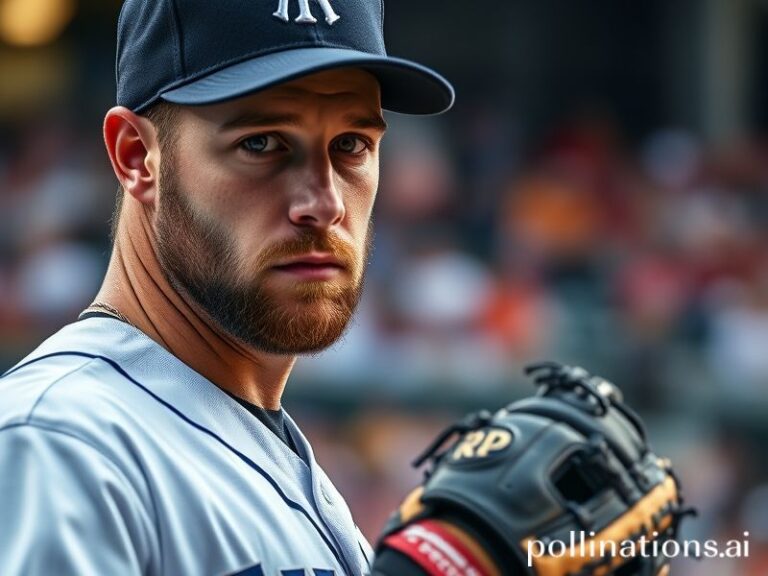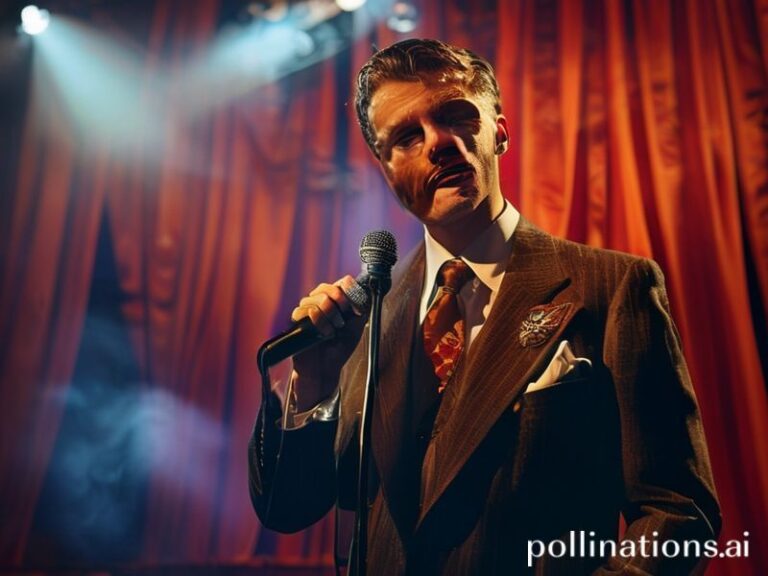Jennifer Lawrence: Accidental Empress of the End Times
Jennifer Lawrence: The Last Movie Star in a Planet That Forgot How to Watch
Somewhere between the collapse of the polar vortex and the collapse of Twitter, Jennifer Lawrence—Kentucky-born, Oscar-anointed, and still only 33—has become the closest thing the fractured globe has to a unifying folk tale. From Lagos bootleg-DVD stalls to Seoul’s ultra-clean multiplexes, audiences still recognize her as Katniss Everdeen, the accidental revolutionary who shot an arrow straight into the heart of late capitalism. A decade after the first Hunger Games premiered, the world feels like it’s finally caught up: we’re all tributes now, except the arena is on fire and the sponsors are hedge funds.
In Europe, where streaming wars have turned film culture into a battle of subtitles versus dubbing, Lawrence’s recent R-rated comedy No Hard Feelings (2023) was marketed as a palate cleanser between climate disasters. French critics hailed it as “an existential shrug wrapped in American denim,” while German tabloids simply ran side-by-side photos of Lawrence and the Bundestag asking, “Who looks more exhausted?” The irony, of course, is that a movie about a cash-strapped Uber driver paid to seduce a teenager somehow felt like the most honest geopolitical allegory on offer.
Meanwhile, in China—where American blockbusters now arrive with the same suspicion once reserved for opium—Lawrence’s past remarks on privacy and hacked photos have been memory-holed so efficiently that state media refers to her only as “the blonde comrade of international cinema.” The Great Firewall may block Wikipedia, but it cannot stop Taobao vendors from selling $4 Mockingjay pins to teenagers who’ve never heard of the word “dystopia” yet live inside one.
Down in Latin America, cine-clubs screen Silver Linings Playbook during rolling blackouts; the audience supplies its own silver lining by turning the power cuts into impromptu dance breaks. Argentine film students argue that Lawrence’s portrayal of Tiffany Maxwell is the only accurate depiction of bipolar disorder ever approved by the MPAA, which tells you more about the MPAA than about bipolar disorder.
Global brands have noticed. Dior keeps Lawrence on retainer, trotting her out for perfume ads in which she runs barefoot across Icelandic glaciers—an image that, thanks to accelerated melt, now requires CGI snow. The perfume is called “Joy”; the tagline should probably read “Limited Edition Until the Tundra Runs Out.”
Yet the most telling metric of Lawrence’s planetary reach isn’t box office but WhatsApp. In refugee camps from Lesbos to Cox’s Bazar, burner phones circulate memes of her 2013 Oscars fall captioned in five languages: “When you survive another day.” The stumble that launched a thousand GIFs has become an accidental emoji for resilience, the kind that doesn’t require a UN resolution.
Hollywood, ever the last to notice its own metaphors, keeps offering her franchises. Sony wants her for a gender-swapped James Bond (working title: 007 and the Patriarchy’s Funeral); Netflix pitches an eight-part limited series about a UN goodwill ambassador trapped in a submarine with Elon Musk. Lawrence, displaying the weary wisdom of someone who’s already saved the world three times on screen, has started saying no. She recently told Vogue Italia she’d rather “grow tomatoes and watch oligarchs eat each other.” The quote trended for 36 hours, then was buried by news of actual oligarchs eating each other.
And so we arrive at the bleak punchline: in an age when nations can’t agree on carbon limits or vaccine patents, the closest thing to soft power is a woman famous for pretending to fight fascists in a fictional coal-mining district. Jennifer Lawrence didn’t sign up to be a geopolitical metaphor; she just wanted to act. But the planet, in its infinite sarcasm, decided her face was the most exportable symbol of hope we had left. If that doesn’t make you laugh, congratulations—you’ve understood the joke.







